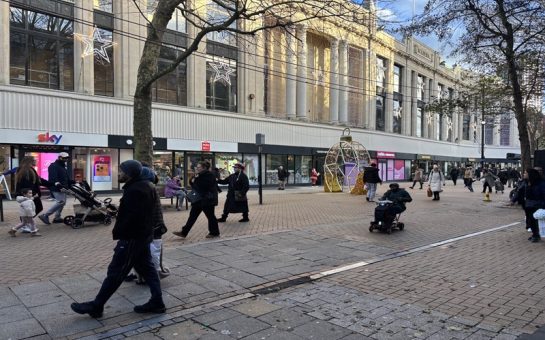A recent review of the Mental Health Act 1983 reveals that black people are four times more likely to be sectioned than any other group in England.
The independent analysis, which based its findings on patients who had been detained in hospital, also highlighted that black people are eight times more likely to be on a Community Order.
Commissioned by the government, the review showed that the Act is outdated, needs an overhaul, and stated that sectioning is being misused and does not properly protect patients’ rights.
Ashley from Fulham, 26, who was sectioned two years ago for induced psychosis, said: “In this society racism still exists.
“Any way of detaining a black person they will – whether it’s through a suspected crime or acting out of the ordinary, they will find a way to detain us.
“I know that my state of mind has nothing to do with the colour of my skin, but I don’t think anyone else sees that – it hurts.”
The review mentioned the excessively poorer experiences and outcomes of individuals from black African and Caribbean communities, and the failure to meet human rights obligations.
Ashley said he had many friends from black African and Caribbean backgrounds in hospital detention and in the hostel he was placed in post-release.
He insisted that some of them did not suffer from mental health issues but were simply misunderstood or came from a difficult past.
Ashley said: “While I was detained, I was forced to take medication, both orally and by injection.
“You’re not allowed to turn it down – you have no choice.
“The staff are only there so you do not harm anyone – they are not really there for your rehabilitation and they believe the medication can do all the work.”
He added: “It was the worst experience of my life – I felt withdrawn, I had nobody to talk to and you are just made to feel crazy.”
Chief executive of the mental health charity Sane, Marjorie Wallace, said: “The need for this review springs directly from the fact that psychiatric services are a broken system.
“More than half of mental health patients in hospital today are detained under the section compared with less than ten per cent thirty years ago, a disproportionate number from black and other ethnic minorities.”
Ms Wallace highlighted: “One reason for this is the continuing, relentless closure of psychiatric beds, which means some doctors can only obtain the care and treatment their patients need by having them sectioned and deprived of their liberty.
“Shockingly, those who have been detained report appalling experiences, with acute psychiatric wards so squalid and threatening that they refuse to be readmitted unless forced to do so.
“Inpatient treatment needs to be a positive experience, not a punishment.”
Chief executive of Mind, Paul Farmer, said: “This outdated legislation has seen thousands of people experience poor, sometimes appalling, treatment, who still live with the consequences to this day.”
Mr Farmer said the organisation knew that black people are disproportionately sectioned and are more likely to be restrained.
He stated that he backs the promotion of race equality in mental health services and in the use of the Act but insisted that this should come with concrete commitments, including the NHS building relationships with local communities.
Mr Farmer urged the Government to push this review forward so that people with mental health problems get the support they need.
He said: “The recommended changes are much needed but detentions will only reduce when people have access to quality, culturally relevant and timely care, so that fewer people end up in a mental health crisis.”
Marvin Stewart from Croydon, 28, who previously worked with mental health patients said: “In my experience, black people are more likely to be sectioned or labelled with a psychotic illness simply because of the forced mental handcuffs society puts on them that restricts them from doing certain things in life.
“The stigma attached to mental health needs to end and so does the relationship between blackness and fear which leads to horrifying levels of labelling, sectioning and over-diagnosing.”
The rate of detention is rising; the patient’s voice is lost within processes that are out-of-date and can be uncaring; there is unacceptable over-representation of people from black and minority ethnic groups amongst people detained; and people with learning disabilities and/or autism are at a particular disadvantage, the review concluded.
The prime minister said the injustices were unacceptable and promised action.
Ashley’s name was changed as requested.




